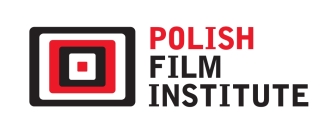Forms of the Vernacular: Traditional Folk Music in Polish Film Comedies (1953-1980)
Abstract
The vernacular, understood as something native and colloquial, is a concept which permits to see Polish comedies as a local phenomenon, on many levels associated with current cultural changes. The role of a comedy has always been to comment on current political and social affairs, however during the socialist era this role became distinctly ambivalent. In the context of a state patronage the comedy not only had the ludic function but was also involved in the current ideological discourse. This problem in particular applies to the presence of folk music and the folk idiom on film soundtracks. Starting with the Adventure in Marienstadt (1953) up to the Teddy Bear (1980) performances of folk groups such as “Mazowsze” was associated with official ceremonies. At the same time, one can interpret the appearance of folk music in films from this period as an expression of longing for authenticity, perhaps irretrievably lost as a result of massification, modernisation and transformation of national culture.
Keywords:
folk music, Polish cinema, comedy, ideologyReferences
Chion, Michel. Audio-wizja. Dźwięk i obraz w kinie. Trans. K. Szydłowski. Warszawa-Kraków: Stowarzyszenie Nowe Horyzonty, Korporacja ha!art, 2012.
Google Scholar
Dadak-Kozicka, Józefa Katarzyna. Folklor sztuką życia. U źródeł antropologii muzyki, Warszawa: Instytut Sztuki Polskiej Akademii Nauk, 1996.
Google Scholar
Dahlig, Piotr. Muzyka ludowa we współczesnym społeczeństwie. Warszawa: Wydawnictwa Szkolne i Pedagogiczne, 1987.
Google Scholar
Drozd-Piasecka, Mirosława, Wanda Paprocka, W kręgu tradycji sztuki ludowej. Warszawa: Ludowa Spółdzielnia Wydawnicza, 1985.
Google Scholar
Edensor, Tim. Tożsamość narodowa, kultura popularna i życie codzienne. trans. Agata Sadza. Kraków: Wydawnictwo Uniwersytetu Jagiellońskiego, 2005.
Google Scholar
Green, Archie, “Vernacular Music: A Naming Compass”. “The Musical Quarterly”, 77: 1 (1993): 35-46.
DOI: https://doi.org/10.1093/mq/77.1.35
Google Scholar
Hendrykowski, Marek. „Farmazon. Studium z genologii polskiego kina popularnego”, „Kwartalnik Filmowy” 56 (2006): 74-92.
Google Scholar
Hobsbawm, Eric, Terence Ranger (eds.).Tradycja wynaleziona. Kraków: Wydawnictwo Uniwersytetu Jagiellońskiego, 2008.
Google Scholar
Kłoskowska, Antonina. Kultura masowa. Krytyka i obrona. Warszawa: Wydawnictwo Naukowe PWN, 2006.
Google Scholar
Michalski, Dariusz. Piosenka przypomni ci.... Historia polskiej muzyki rozrywkowej, lata 1945-1958. Warszawa: Iskry, 2010.
Google Scholar
Sowińska, Iwona. Polska muzyka filmowa 1945-1968. Katowice: Wydawnictwo Uniwersytetu Śląskiego, 2006.
Google Scholar
Stańczak-Wiślicz, Katarzyna (ed.). Kultura popularna w Polsce w latach 1944-1989. Problemy i perspektywy badawcze. Warszawa: Instytut Badań Literackich PAN, 2012).
Google Scholar
Trębaczewska, Marta. Między folklorem a folkiem. Muzyczna konstrukcja nowych tradycji we współczesnej Polsce. Warszawa: Wydawnictwo Uniwersytetu Warszawskiego, 2011.
DOI: https://doi.org/10.31338/uw.9788323510475
Google Scholar
Zwoliński, Andrzej. Dźwięk w relacjach społecznych. Kraków: Wydawnictwo Akademii Muzycznej, 2004. 258-259.
Google Scholar
Authors
Krzysztof Siwońkwartalnik.filmowy@ispan.pl
Jagiellonian University Poland
Filmoznawca, doktorant na Wydziale Zarządzania i Komunikacji Społecznej UJ. Współpracuje z tygodnikiem „Kultura Liberalna”. Obecnie pod kierunkiem dr hab. Iwony Sowińskiej przygotowuje dysertację dotyczącą dźwięku oraz muzyki w polskiej komedii filmowej okresu PRL.
Statistics
Abstract views: 40PDF downloads: 23
License
Copyright (c) 2015 Krzysztof Siwoń

This work is licensed under a Creative Commons Attribution 4.0 International License.
The author grants the publisher a royalty-free non-exclusive licence (CC BY 4.0) to use the article in Kwartalnik Filmowy, retains full copyright, and agrees to identify the work as first having been published in Kwartalnik Filmowy should it be published or used again (download licence agreement). The journal is published under the CC BY 4.0 licence. By submitting an article, the author agrees to make it available under this licence.
In issues from 105-106 (2019) to 119 (2022) all articles were published under the CC BY-NC-ND 4.0 licence. During this period the authors granted a royalty-free non-exclusive licence (CC BY-ND 4.0) to use their article in „Kwartalnik Filmowy”, retained full copyright, and agreed to identify the work as first having been published in our journal should it be published or used again.











